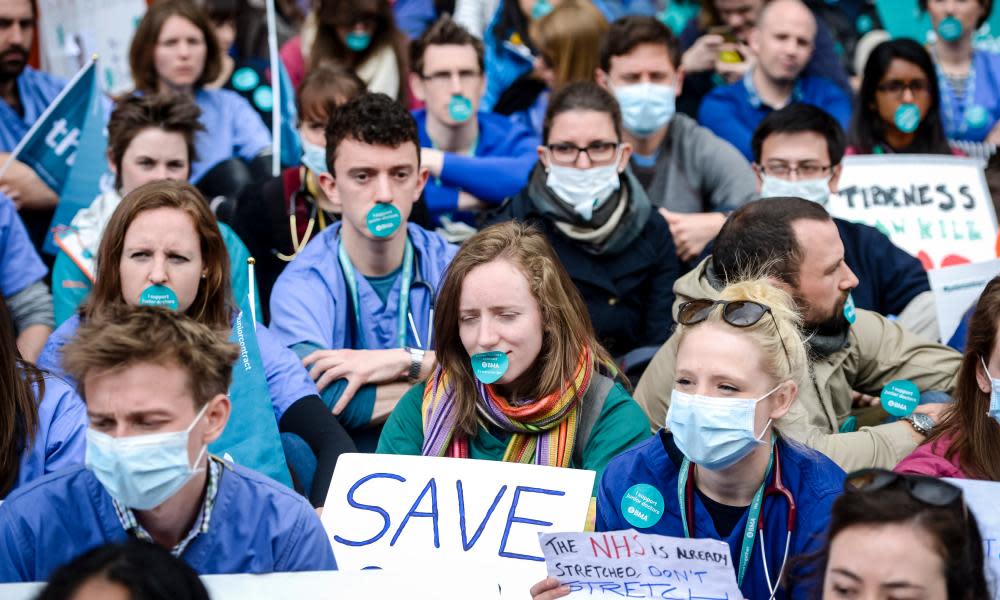Junior doctors repeatedly working past shift end, NHS data shows

Tens of thousands of junior doctors are working past the end of their shifts because hospitals are so understaffed, NHS figures show.
Almost 36,000 trainee doctors in England have worked beyond their contracted hours more than 63,000 times since 2015.
The figures, obtained by the Health Service Journal website, show nearly 36,000 junior doctors have filed an “exception report” since 2015. Trainee medics were given the right to do this after their longrunning contract dispute with the government in 2014-16.
The junior doctors filed 63,309 exception reports over the last three years, the data shows. Croydon Health Services NHS trust received the most: an average of 8.5 times for each of the 205 junior doctors it employs.
The Croydon NHS trust was fined £25,320 for persistently allowing junior doctors to overwork – the largest sum of all trusts to have faced financial penalties. Overall, trusts were fined more than £250,000 for breaching rules intended to stop trainees getting burned out.
NHS trusts are meant to give doctors time off in lieu or extra money in return for them working extra hours, or to review their working patterns. A “guardian of safe working” at each trust is meant to assess whether or not doctors below the level of consultant are working unreasonably long hours.
London North West University Healthcare NHS trust had the most number of breaches at its hospitals (2,569) followed by Sheffield Teaching Hospitals NHS foundation trust (1,935) and Croydon NHS trust(1,748).
In contrast, Barts Health NHS trust in London, for example, rarely asked its more than 1,000 trainee medics to work beyond the end of their shifts. Only 526 exception reports were filed at the trust during the three-year data period, the HSJ found.
The website also learned that some juniors were being discouraged by their superiors from submitting exception reports because they made their units look inefficient.
Dr Andrew Goddard, the president of the Royal College of Physicians, said that should never happen. “Exception reports are there for a reason – to protect doctor and patient – but it is also crucial that we don’t expect ever more of hard-pressed staff, otherwise we will contribute to their burnout and ultimately create a much bigger problem for the NHS.”
Danny Mortimer, the chief executive of NHS Employers, said: “Although the process is working well overall there are areas where guardians of safe working hours and doctors tell us improvement is needed.”
Meanwhile, Chris Hopson, the chief executive of NHS Providers, which represents hospital trusts, has warned ministers that the NHS long-term plan cannot be delivered without a huge increase in staff.
“I think I can make a relatively confident prediction here today that everything in this plan is not going to be delivered,” he told MPs on the Commons health and social care select committee on Tuesday. “There is simply too much to do for the money and workforce we have available.”

 Yahoo News
Yahoo News 
